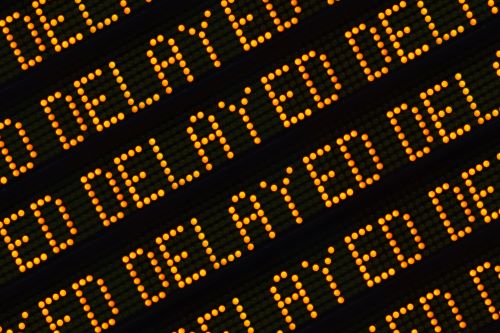As more train timetable changes loom, government and the rail network must learn the difficult lessons of years past
Bayes Business School Fellow calls on closer and more effective working to help counteract the impact of changing train timetables and cancellations.
Improved and more efficient communication between public and private actors is critical if the rail network is to successfully navigate the challenges of the pandemic.
In recent weeks, the rise of the omicron variant of Covid-19 has resulted in chaos for rail passengers, with reduced timetables, additional cancellations, and increases in staff absence.
Daniel Fisher, Fellow of Management and PhD candidate at Bayes Business School, has focused his research on the importance of transportation to passengers, interviewing train drivers, engineers, driver managers, customer engagement managers and directors that work on the UK’s rail network.
Mr Fisher labelled the reduced timetables that were introduced during the pandemic and rolled out in Spring 2020 as ‘successful’, but he is concerned that a lack of transparency could be to the detriment of the rail network. This follows rumours of plans by Whitehall to cut one in four train services, while industry sources report ‘radio silence’ from government and little co-ordination from the Department from Transportation.
He believes there are three important steps to follow if the UK is to avoid the level of disruption that followed the introduction of a new timetable in 2018, which resulted in a public enquiry and a £5 million fine for Govia Thameslink Railway. These are effective communication between public and private actors, prioritise safety, not profits, and allow for enough train driver slack.
“With the industry reducing their service due to low demand and staff shortages, government ministers and sector bodies must join up their working to ensure we learn the lessons of 2018. It is imperative that these discussions are not prolonged unnecessarily.
“In May 2020, the Prime Minister announced the introduction of Great British Rail, a new public body which will bring certain elements of the franchise model under public control. However, public-private partnerships will remain in place which means that effective co-working between public actors and private actors is key to increasing trust and improving communication.
"While fines for delays are intended to incentivise good behaviour, my research suggests it can encourage irresponsible behaviour by prioritising profits over safety and even failing to run a service at all if the blame can be put on Network Rail.
"Train drivers, like everyone else, are facing the ill-effects of Covid and illness and absence should not be a source of anger and frustration. There needs to be adequate numbers of trained train drivers on standby to avoid cancellations, delays, and disruptions to our lives. Train drivers cannot drive a particular route without thorough training on routes and types of trains, so it is vital that rail companies maintain driver numbers, despite timetable reductions, so drivers are ready and able if needed when passenger numbers increase again."
Mr Fisher explains that timetable changes involve close co-ordination between public organisations, such as Network Rail, and privately-run train operating companies. He says that recent cancellations demonstrate how important the railway network is for communities and the UK economy, as well as addressing climate concerns.
“This is an industry staffed by people who care deeply about their service to the public and whose focus is on providing a safe service we can rely on. Trains get us to work on time. They deliver us safely home to our friends and family. They allow us to plan an enjoyable night out.
“It is also an industry that is key for addressing global heating. Electric rail uses 20 times less carbon dioxide than air travel and seven times less than transportation on our roads. It is a service that provides a great deal of social value. For these reasons, we should all want our rail network to thrive and to succeed.”
Ends
